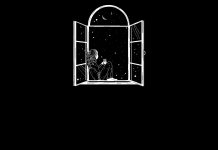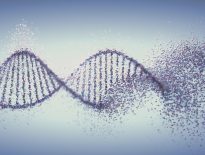Throughout his life, Dr. Eben Alexander, a famous neurosurgeon who taught at Harvard Medical School, would say he did not believe in the existence of life after death. Today, however, he speaks of a “divine spark living within each of us.”
A coma he went through in 2008 convinced him that there was life after death. Dr. Alexander says that, while he was in a vegetative state, he had “a vision of heaven”.
Is there something beyond death?
Man has always sought to know if there is anyone beyond himself. Regardless of the reason for this search, the core of religion, as theologian and philosopher Friedrich Schleiermacher states, is the feeling of absolute dependence. Man seeks God. It is the desire of every human being to find something beyond the point of no return.
Each era has created its own “heaven” according to its specific cultural points of reference. Although the Christian religion speaks of a place called Paradise, Heaven, etc., people today increasingly need certitudes about the existence or non-existence of such a place and want evidence as objective as possible for it. On the one hand, in a society in which life is deeply marked by science, it is very difficult to argue for the existence of heaven, since it cannot be verified by the instruments of science. On the other hand, it is true that there are people who have changed their theological beliefs as a result of some ecstatic experiences.
But how objective are such experiences? The reality of a religious experience is not and cannot be axiomatic. The mere fact that people believe in the transcendent does not guarantee its reality. Illusion is an aspect that is present in life, and religion is not immune to it. The data of the religious experience must be analysed from a critical standpoint.
Tricks of the memory
Dr. Peter Fenwick, a lecturer at King’s College, London, a consultant for the Institute of Psychiatry and president of the British branch of the International Association for Near-Death Studies, says there are serious problems in interpreting people’s memories about what happened to them while the brain was not active.
Since the survivor can recount them post factum, how can we be sure that those things were perceived and felt while the brain was being destroyed? The same problem occurs with dreams. Memory is fragile and it can be easily deceived by expectations.
Cognitive psychologist Elizabeth Loftus has conducted several experiments that have shown how recalling real experiences can turn them into what people think should have happened and what they were told would happen. How we perceive the world around us depends to a large extent on our expectations, experiences, and interference with others, as well as on clear evidence.
Who to believe?
In an interview with Newsweek, Dr. Eben Alexander confesses his astonishment and at the same time his conviction about his experience: “I’m still a doctor, and still a man of science every bit as much as I was before I had my experience. I experienced something so profound that it gave me a scientific reason to believe in consciousness after death.”
Is there a heaven? Is there consciousness in death? Is death just a transition to another existence? Unfortunately, Dr. Alexander’s experience cannot tell us anything about what is “beyond,” for the simple reason that he did not die—he was only in a coma—so his experience can be considered at most a near-death one.
The feelings confessed by the doctor were not unknown to us anyway; they are congruent with certain images in mediaeval literature. His account of the beautiful blue-eyed woman who guided him through the clouds is reminiscent of Dante’s description. In the third part of his work The Divine Comedy, named “Paradise”, heavenly spaces are presented to Dante by a childhood friend of his, who symbolised the idea of perfect femininity.
The process of verifying ecstatic experiences is difficult and often accompanied by failure. The great challenge is determined by establishing the sources of authority used to prove the existence of certain realities. Several sources of authority can be distinguished in people’s religious experience: the Bible, tradition, reason, and experience. There are situations when they agree, but there are also quite a few situations of disagreement, even conflict. Therefore, it is necessary to establish a source that verifies and regulates religious life at a theological and practical level.
In the Christian Church, the canon of the Holy Scriptures, over the centuries, has been considered the norm for establishing doctrine and religious experience. As such, the Bible is the most authoritative and justified criterion for verifying religious experiences. The apostle Peter, after the transfiguration of Jesus Christ, stated that, over and above what he experienced, he had “the prophetic message as something completely reliable” (2 Peter 1:19), acknowledging that the Bible imposes its authority on experience. As such, although we do not have the tools to verify Dr. Alexander’s own experience, we can assess the content and theological implications of that experience by comparing it to what the Bible teaches.
Dr. Eben Alexander’s story went like this: in the fall of 2008, he contracted a very rare meningitis, caused by a bacterium that, according to him, caused a “shut down” of the brain, so that his “higher-order brain functions [were] totally offline.” Although the neurons in the cortex were inactivated by the bacteria, his consciousness ‘self-travelled’ to another world.
The invoked detachment of the body described by Dr. Alexander implicitly supports the idea of a body/soul dualism. If the human soul is an entity that can exist outside the body, then the experience he described can be authentic. However, if we look at the human being holistically, given that the Bible rejects the idea of this dualism, then Dr. Alexander’s experience contains serious logical and theological problems.
What the Bible says about the immortality of the soul
The belief in the afterlife is clearly expressed in classical Greek literature. It is a truism that Plato’s teaching on the immortality of the soul profoundly influenced Christian anthropology, and that is why there is an obvious discrepancy between traditional Christian anthropology and the anthropology of the Holy Scriptures. While Plato supports the idea of the immortality of the soul, the Bible supports the resurrection. While Plato supports the idea of an incarnate soul, the Bible supports the idea of a body that receives the breath of life from God and becomes a living soul.
The Scriptures are edifying about the condition of the dead: “[T]he dead know nothing […]. Their love, their hate and their jealousy have long since vanished; never again will they have a part in anything that happens under the sun” (Ecclesiastes 9:5,6). God is also categorical about necromancy: “Do not turn to mediums or seek out spiritists, for you will be defiled by them” (Leviticus 19:31); “A man or woman who is a medium or spiritist among you must be put to death” (Leviticus 20:27).
However, if the Scripture states that the dead know nothing, what is the reason for the divine prohibition on contacting them? The reason is simple, but important. The apostle Paul describes a battle that takes place on a cosmic level: “For our struggle is not against flesh and blood, but against the rulers, against the authorities, against the powers of this dark world and against the spiritual forces of evil in the heavenly realms” (Ephesians 6:12).
According to the Bible, demonic spirits are the only ones interested in disguising themselves as dead people in order to confuse and inculcate ideas that go against the truth of the Holy Scriptures. Theories and practices related to the cult of the dead are a worship of demons.
Meanwhile, it is not the dead, nor the spirits, but the Bible that is the only source of authority regarding the theology and reality of the spiritual world and the world to come. That is why a Christian believes in the existence of heaven—not because of Dr. Eben Alexander’s vision, but because the Bible affirms its existence.



















